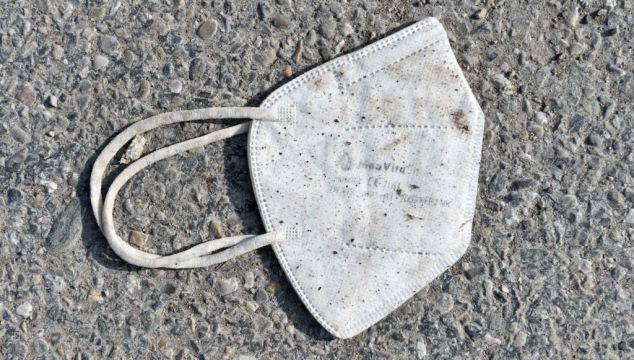The Taoiseach has confirmed the Government will accept a recommendation to bring mandatory mask-wearing to an end in Ireland, with the proposal expected to be formally approved at a Cabinet meeting on Tuesday.
Here is how the lifting of a measure that has come to be a part of daily life during the Covid-19 pandemic is likely to play out...
Will masks become a thing of the past?
That is unlikely. The key is that legally mandated mask-wearing is likely to be replaced with a recommendation to voluntarily don a face covering.
The change is largely to do with a move away from laws enforcing the public health measure, with current fines and potential jail time of up to a month for breaching the measure no longer deemed a proportionate response.
However, this doesn’t mean that masks won’t continue to be recommended in many settings.
Taoiseach Micheál Martin has emphasised the difference between what is mandated legally and what is public health guidance, saying he will continue to wear masks while shopping and on public transport “as a precaution.”
Nphet member Dr Mary Favier has warned that removing mask-wearing by law may be misinterpreted, saying masks remain a very effective means to tackle Covid, and she anticipates that many people, herself included, will continue to wear them.
So where will I continue to see masks?
We can look to our neighbours in Britain for clues as to how the situation might play out here in Ireland.
In England, face coverings are no longer required by law. However, the government suggests that people continue to wear a mask “in crowded and enclosed spaces where you may come into contact with other people you do not normally meet.”
Masks do, however, remain a requirement in healthcare settings - as they are set to do in Ireland - such as GP surgeries, hospitals and care homes.
Masks also remain a requirement on the London Underground and in buses as a “condition of carriage”. This means Londoners will no longer face fines, but can still be turned away from transport services by enforcement officers if they refuse to comply with the requirement.
When it comes to retailers, a number of major supermarkets including Tesco have asked staff and customers to keep wearing face coverings.
In the workplace, staff are not legally required to wear face coverings but may choose to wear one. Employers can also choose to ask their staff or customers to wear a face covering, even though they are not legally required.
Could mandatory face masks ever return?
We have learned to rule nothing out during a pandemic.
Last week, Tánaiste Leo Varadkar said “the pandemic isn’t over” despite the loosening of restrictions and plans to disband the National Public Health Emergency Team (Nphet) in its current form.
Mr Varadkar said that while Nphet will “fade away,” but added: “it’s also a body that can be reconstituted.”
Mr Varadkar said the Government would “be on guard” and prepared for a future spike or “sting in the tail” from the virus.
He also predicted it will become the norm for people to opt to wear face masks in specific situations, such as during winter months, in crowded areas or on public transport.
So when will mandatory mask-wearing end?
For now, legal requirements to wear a mask in retail and other indoor public settings, for staff in hospitality settings, and on public transport, expire on February 28th and are not due to be renewed.
When it comes to schools and early learning settings, it is expected that public health measures including masks and physical distancing pods will also be removed.
However, it is understood masks will continue to be required in healthcare settings and advisory on public transport.
The rule change will not impact the requirement for masks to be worn during air travel, as these rules are set by the European Union.
What other changes are coming as Ireland enters a new pandemic phase?
The removal of mandatory mask-wearing is to be accompanied by other adjustments to Ireland’s pandemic strategy, including the disbanding of Nphet.
Chief medical officer Dr Holohan has suggested that a smaller group be set up to continue to monitor the spread of Covid-19, with the team in its current form to be stood down and reintegrated into the Department of Health.
In its last batch of recommendations, Nphet is also understood to have given the green light for a major scaling-down of the country’s testing and tracing system, moving to a more targeted approach focused on the medically vulnerable and those over the age of 55.







